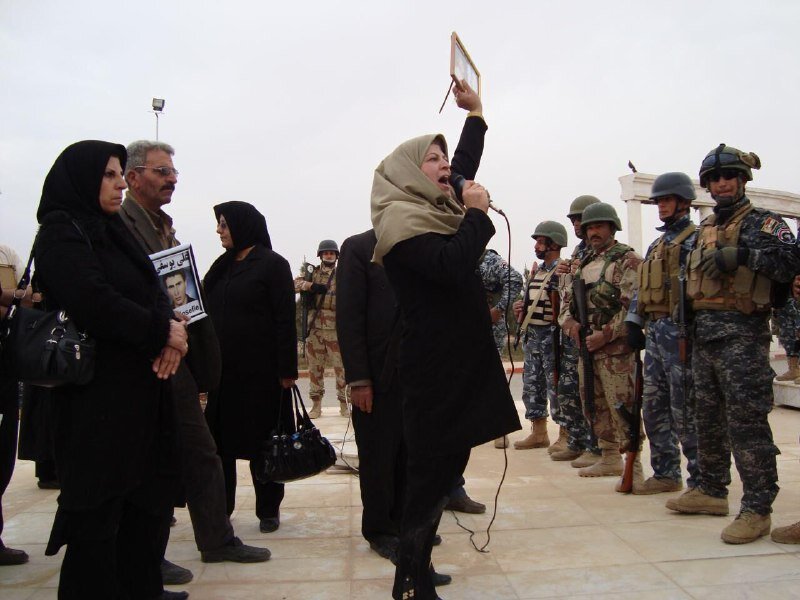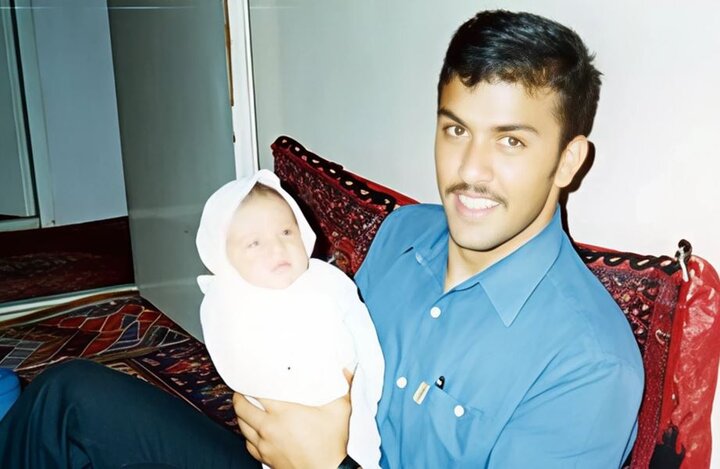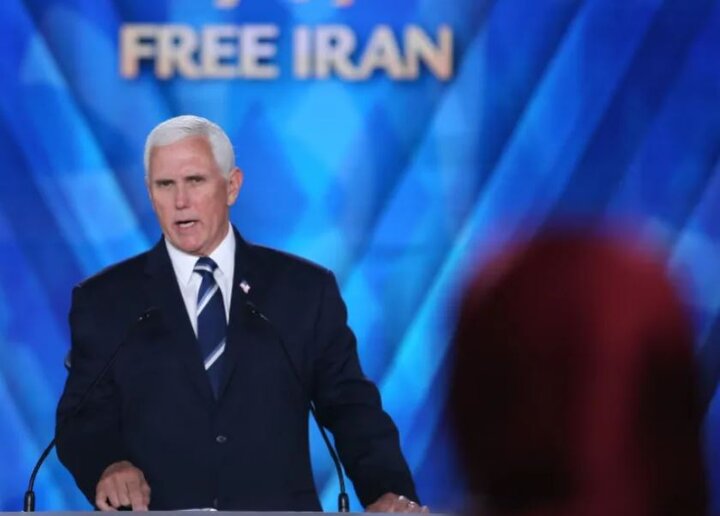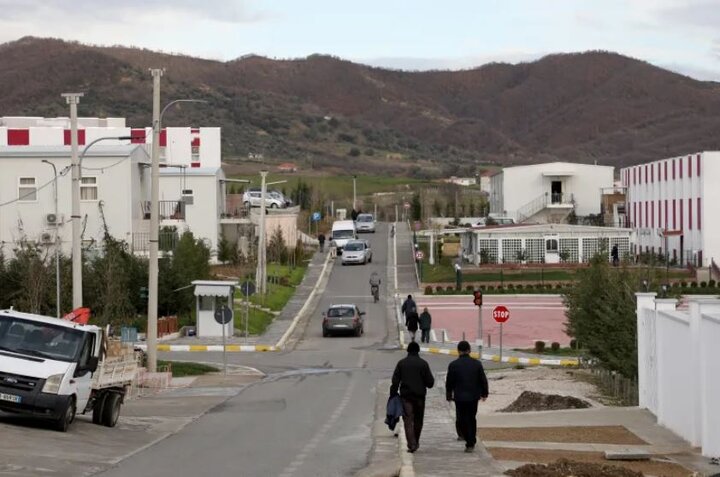‘How the MEK abducted my son – and Albania looked away’
Mother tells heart-wrenching story of a 24-year search for her only son

When Soraya Abdollahi was working day and night as a single mother in her 30s to provide for her three young children, she thought the biggest challenge she would face in the future was ensuring her kids received an adequate education and married someone they loved. She never imagined that, at 64 years of age, she and the rest of her family would have already spent over two decades looking for her only son, Amir Arsalan.
Soraya has three children. Arsalan is the second, and the one she felt the closest to. "We led a difficult life financially,” she explained. “I worked at factories and sometimes had to take night shifts. Arsalan helped me with money. After school, he worked at car repair shops, made his own allowance, and helped buy some of the things his sisters needed.”

Amir Arsalan holding his little sister. He is in his late teens in this picture
Arsalan became obsessed with bodybuilding around the age of 16. He liked the sport because it helped him gain strength and could ultimately help him make money. "He had a coach who told him he needed to complete an international course. That way, he would be able to take part in tournaments and also have trainees of his own."
In the early 2000s, Soraya's beloved son travelled to Turkey at 20 years old to get the certification. There, he met an Iranian man who owned a factory in Germany. In reality, however, the man was an undercover Mojahedin-e-Khalq (MEK) agent, looking to recruit new members for the terrorist organization.
"Arsalan called me one day, saying he'd changed his plans," Soraya remembered. "He said he'd met a wealthy factory owner who offered him a well-paying job in Germany. He said the man promised he could bring me and his sisters to Europe after a few years."
The Istanbul hotel where Arsalan was staying also housed many other Iranians. The MEK agent had strategically placed other group members around the hotel to vouch for the supposed factory owner, portraying him as a generous and philanthropic individual to those he was targeting.
Soraya sent a significant amount of money to Turkey to cover her son's travel expenses to Germany. "The man who claimed he was taking him to Europe even spoke to me on the phone while Arsalan was still in Turkey," she recounted. "He said the money I'd sent wasn't enough, but that he'd still take Arsalan and deduct the remaining amount from his salary."
Arsalan called his mother shortly after to say goodbye. Then, he vanished.
"I was worried sick every day. I couldn't believe I had lost contact with my son so easily and had no way of reaching him. It was a living nightmare."
It took Arsalan three years to contact his mother again. He told Soraya that he had been staying in a refugee camp in Germany where no means of communication existed, but that he was now out and about, living a good life, and training dozens of athletes at a gym he owned.
"He gave me a German number and said we could now keep in contact regularly," Soraya stated. The number turned out to be a fake.
Four years outside hell’s gates
It wasn't until 2008 or 2009 that Soraya discovered the truth about her son. The supposed factory owner Arsalan had met hadn't taken him to Germany at all; instead, he'd taken him to Iraq. And not just anywhere in Iraq, but to Camp Ashraf: the desolate and secluded headquarters of the MEK, holding over 5,000 individuals. Some had entered the camp willingly, while others, like Arsalan, had been abducted and dragged there.
"I found out about my son's fate through a distant relative of my sister-in-law, who had left the MEK and returned to Iran. He knew me, so he looked for me and let me know what had happened to Arsalan."
Back then, Soraya didn't know much about the MEK. She recalled hearing their name on television in the 1980s when they were carrying out terrorist attacks in Tehran, but at 18, she was too focused on her new married life to pay much attention. Even after learning that Arsalan had been taken by the MEK, she naively imagined they lived relatively normal lives within the general population. The reality of the situation only became clear when an association founded by former MEK members took her and other families whose children had been abducted to Iraq. Their goal was to shout their children's names outside Camp Ashraf, hoping they would hear them and attempt to escape.

Former US Vice President Mike Pence addresses the MEK at the Ashraf-3 camp in Albania on June 23, 2022
"We crossed into Iraq through the Mehran border in western Iran. I can't truly describe the emotions I felt when we reached what was essentially a desert. People pointed to these horrifying concrete blocks and said, 'That is Ashraf.'"
As previously reported by the Tehran Times, those inside the camp were virtually cut off from the outside world. Mobile phones were forbidden, TV watching was restricted, and computer use was limited to assigned tasks. Relationships were tightly controlled as well. The group's leader, Masoud Rajavi, forced all couples within the camp to divorce, separated children from their parents, and claimed all remaining women as his own wives. He mandated daily sessions where everyone was forced to confess their "sins" and reaffirm their loyalty to Rajavi and his agenda.
Soraya stayed outside Camp Ashraf for four years. She and other families of abductees lived in harsh conditions alongside the Iraqi Army stationed nearby. Food was scarce, clean water was unavailable, and maintaining hygiene was a constant struggle. But Soraya persevered despite the hardships. She and the others would set up loudspeakers around the camp, shouting their children's names into microphones, hoping to reach them. Of course, none of their children were ever allowed to approach the gates. Occasionally, some of the higher-ranking MEK members would come out to hurl insults, rocks, and pieces of scrap metal at them.
Soraya was eventually forced to return to Iran for surgery after her back got severely injured in one of these attacks. By the time she returned to Iraq, her son had been moved to a new MEK camp in Albania.
"We tried to do the same thing in Albania. Back then, Albania still had an embassy in Iran. I went there with a few other mothers to apply for visas, but we were all denied without any explanation. Every time we tried after that, the result was the same," she said, tears starting to stream down her face.
According to information obtained by the Tehran Times, the new camp in Albania—set up for the MEK with U.S. coordination—is run under the same harsh and inhumane conditions as the one in Iraq. People there are stripped of their freedom and identity, forced to work long hours every day, and face severe punishments, even death, if they don’t follow orders.
Tirana snapped its diplomatic ties with Tehran in 2022, under the alleged influence of the United States and Israel, the two biggest supporters of the MEK. Albanian police even raided Iran’s diplomatic premises when the diplomats were not in the building.
Betrayed also by international rights bodies and Western states
After no luck with the Albanian government, Soraya then hoped that involving an international body like the United Nations might help. "All I knew was that the UN was responsible for upholding human rights. So, I went to Geneva in 2016 with several families whose children were also trapped in Albania," Soraya explained.
In Geneva, she managed to meet with Ahmad Shahid, who was the UN Special Rapporteur on the human rights situation in Iran at the time. "I told him my story, and he assured me he would help me meet my son. He invited me to attend a meeting he was having with the MEK at the UN building. But when he saw me at the meeting, he pretended he'd never met or spoken to me before."

Individuals walking on the streets of Ashraf-3 camp near Tirana. They are banned from exiting the site or communicating with the outside world
Her experiences with organizations like the International Committee of the Red Cross (ICRC) followed a similar pattern. She would initially be promised assistance, only to be ignored indefinitely.
Soraya’s disappointment does not end with international organizations. While she lives every day in pain thinking of her son living in a terrorist jail, Western governments – particularly the US, UK, France, and Germany – promote the terrorist group as freedom fighters striving to bring prosperity to Iran! The MEK is routinely brought to the U.S. Congress as well as European parliaments, honored, and at times awarded.
"I understand that these governments have political goals and are using the MEK to achieve them," Soraya stated. “But still, how can they call these people democratic? The MEK is torturing its members physically, mentally, and sexually. And now, Albania shelters them while refusing to let mothers like me see our children."
The future, and what it could look like
An Iranian court is currently conducting public hearings on the crimes committed by the MEK over the past four decades. Since Soraya’s son did not join the group voluntarily, he, along with nearly 2,000 others associated with the organization, is not on the list of defendants. However, Soraya believes that if the doors of the MEK camp in Albania open and people get the chance to leave, even some of those who joined willingly could return to Iran and live there safely. She says she knows many former members who have already come back and are now leading normal lives, just like any other Iranian citizen.
“I doubt any other government would be this forgiving toward people who took up arms and fought against their own country,” she said, referring to the MEK’s alliance with Saddam Hussein during Iraq’s invasion of Iran in the 1980s. “Yet, based on what I’ve learned over the years, Iran’s government has pardoned many of them.”
By the end of our interview, Soraya looked tired and hopeless, a state that also characterized her 24-year search for her son. “I just want to hear my son’s voice one more time. Is that too much for a mother to ask for?”
By Sheida Sabzehvari
Leave a Comment